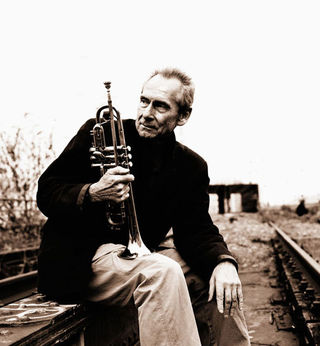Half Man Half Biscuit's oeuvre (see below) includes a pin-sharp skewering of the nineties rockist cliché that was the Eno Collaboration. Which brings me, in a DJ-like segue, to David Sheppard's biog of Brian Eno, first published a couple of years ago, and which I've just finished reading. I only started it last week, and not a couple of years ago, incidentally. Sheppard (a sometime member of Ellis Island Sound along with Pete Astor of the Weather Prophets and The Loft) has a curious writing style, as a friend correctly identified. His sentences can run on for inordinate lengths, so that occasionally by the time you've got to the full stop, you've forgotten the subject. The book is incredibly lop-sided, too, with the vast bulk of its 440-or-so page devoted to the years 1972 to 1981: in fact, the 28 years of Eno's life from 1982 to 2008 (the year of publication) are relegated to the final 90 pages of text. Finally, the book is riddled with errors, whether factual, homophonic or otherwise. Examples? Well Link Wray becomes Link Ray; hands are rung; seeds are sewn; and Kansai Yamamoto is written out of history as Yohji Yamamoto becomes the designer of Bowie's stage costumes in 1973.
All of which may lead you to surmise that I didn't enjoy it. On the contrary, the book was thoroughly entertaining, was well-researched and I did learn a lot as well as having some of my preconceptions questioned. I learned, for example, that Eno had produced the earliest studio sessions for Television (although their collaboration went no further), and that Eno also planned to work with Aswad in the 1970s (though this too came to nothing); also, that Colin Newman of Wire was once mooted as the producer of U2's The Unforgettable Fire. Furthermore, I learned the provenance of the name of New York nightlife staple The Mudd Club (Samuel Mudd was apparently the doctor who treated Lincoln's assassin, John Wilkes Booth). And really, you have to love a book that opens with a quotation from one Homer Jay Simpson- "Rock stars- is there anything they don't know?"
Much of the book is given over to Eno's frequent collaborators, from Phil Collins to Fred Frith to David Byrne, Robert Fripp and Harold Budd. One name that crops up frequently is that of Jon Hassell. Very much his own person, with a career that pre-dates Eno's by some years (he appeared on the original Terry Riley recording of In C, for example), his solo and other work hasn't been overshadowed by his work with Eno (compare Daniel Lanois). Hassell's so-called "Fourth World" style of composition is showcased to great effect on this track (though his remarkable, muezzin-like trumpet-playing is absent) It's taken from his 1990 album City:Works of Fiction, and although there's no direct Eno input on the album, it was released on Opal Records, the label set up by Eno and his wife/manager Anthea. OK, the sound is admittedly so "of the era" that future musicologists will probably be able to pinpoint the exact day it was recorded (as well as the designers of the Japanese jackets the musicians were wearing at the time), but it's still a remarkable piece of music, one that betrays the influence of Eno but isn't in thrall to him.
Download Voiceprint (Blind from the Facts) by Jon Hassell (mp3)
All of which may lead you to surmise that I didn't enjoy it. On the contrary, the book was thoroughly entertaining, was well-researched and I did learn a lot as well as having some of my preconceptions questioned. I learned, for example, that Eno had produced the earliest studio sessions for Television (although their collaboration went no further), and that Eno also planned to work with Aswad in the 1970s (though this too came to nothing); also, that Colin Newman of Wire was once mooted as the producer of U2's The Unforgettable Fire. Furthermore, I learned the provenance of the name of New York nightlife staple The Mudd Club (Samuel Mudd was apparently the doctor who treated Lincoln's assassin, John Wilkes Booth). And really, you have to love a book that opens with a quotation from one Homer Jay Simpson- "Rock stars- is there anything they don't know?"
Much of the book is given over to Eno's frequent collaborators, from Phil Collins to Fred Frith to David Byrne, Robert Fripp and Harold Budd. One name that crops up frequently is that of Jon Hassell. Very much his own person, with a career that pre-dates Eno's by some years (he appeared on the original Terry Riley recording of In C, for example), his solo and other work hasn't been overshadowed by his work with Eno (compare Daniel Lanois). Hassell's so-called "Fourth World" style of composition is showcased to great effect on this track (though his remarkable, muezzin-like trumpet-playing is absent) It's taken from his 1990 album City:Works of Fiction, and although there's no direct Eno input on the album, it was released on Opal Records, the label set up by Eno and his wife/manager Anthea. OK, the sound is admittedly so "of the era" that future musicologists will probably be able to pinpoint the exact day it was recorded (as well as the designers of the Japanese jackets the musicians were wearing at the time), but it's still a remarkable piece of music, one that betrays the influence of Eno but isn't in thrall to him.
Download Voiceprint (Blind from the Facts) by Jon Hassell (mp3)



1 comment:
Nice blog thanks for posting
Post a Comment